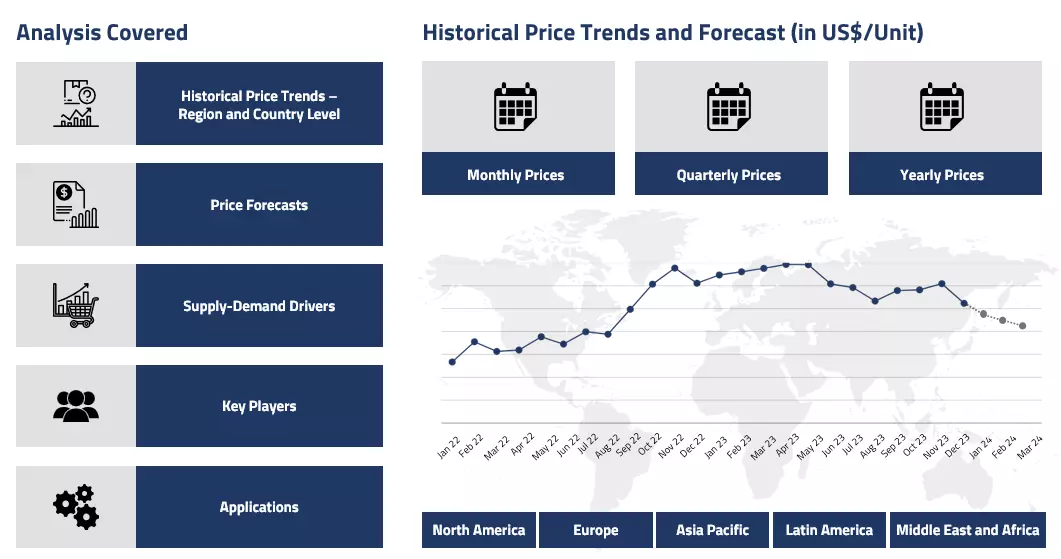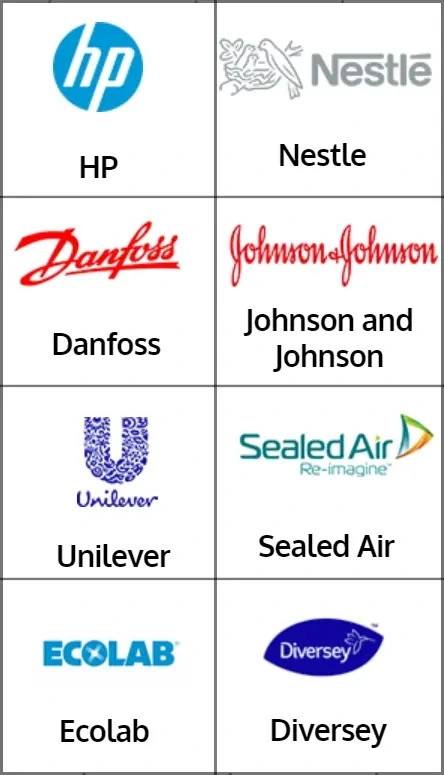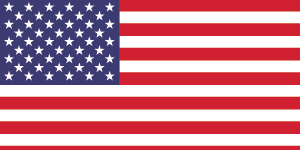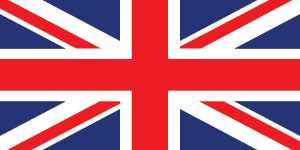Product
Fumaric Acid Price Trend and Forecast
Fumaric Acid Price Trend and Forecast
Fumaric Acid Regional Price Overview
Get the latest insights on price movement and trend analysis of Fumaric Acid in different regions across the world (Asia, Europe, North America, Latin America, and the Middle East & Africa).
Fumaric Acid Price Trend for the First Half of 2025
Asia
In the first half of 2025, fumaric acid prices in Asia followed a mixed pattern. Early in the year, prices dipped slightly due to sluggish demand after the holidays and a buildup of inventories. Although production remained stable, weak buying interest from downstream resin and food additive sectors weighed on market sentiment.
Fumaric Acid Price Chart

Please Login or Subscribe to Access the Fumaric Acid Price Chart Data
Temporary supply disruptions and maintenance shutdowns in plants across South Korea and Japan in Q1 gave minor support to prices, but the overall trend remained soft. In Q2, prices fluctuated with a short-lived rise during post-Lunar New Year restocking, but by late Q2, ample supply and subdued export demand from China kept prices under pressure.
Europe
European fumaric acid prices showed a modest upward trend in H1’25. The first quarter started with steady demand from the food and construction industries, while some logistical issues like port delays tightened supply temporarily. Rising raw material costs, particularly for benzene, added to production expenses, nudging prices slightly higher.
In Q2, while economic activity stayed uncertain, demand from coatings and resins remained stable. However, overall gains were limited by softer industrial growth and inflationary pressures across the region. Market participants continued to operate cautiously, focusing on managing inventories rather than aggressive buying.
North America
In North America, fumaric acid prices declined during H1’25. The downturn in benzene and maleic anhydride prices—key feedstocks—lowered production costs, pushing prices down despite consistent domestic demand. Trade tensions with China led to reduced export opportunities, and the surplus in supply further pressured the market. Although demand from the food and resins sector held steady, producers struggled to maintain margins, especially with oversupply and limited access to alternative markets.
Analyst Insight
According to Procurement Resource, Fumaric Acid prices may continue to face pressure from global trade instability and weak feedstock trends, with recovery likely tied to improved demand and geopolitical clarity.
Fumaric Acid Price Trend for Q4 of 2024
Asia
In Asia, the price of Fumaric Acid declined steadily during Q4’24. The bearish trend was primarily influenced by weak demand from key downstream sectors such as food additives and resins. Production levels remained high across the region, particularly in China, contributing to a state of oversupply.
Feedstock prices, especially maleic anhydride and benzene, also trended downward due to lower naphtha costs and limited industrial demand. Additionally, subdued construction and manufacturing activity across major economies, coupled with cautious year-end inventory management, led buyers to adopt a wait-and-watch approach. Export opportunities were also limited due to logistical challenges and geopolitical tensions, keeping pressure on local suppliers.
Europe
In Europe, the Fumaric Acid market also experienced a downturn throughout Q4. Demand from the food and beverage sector was stable but not strong enough to offset reduced orders from industrial and construction-related applications. Higher feedstock costs initially created some resistance to falling prices, but this support quickly weakened due to abundant inventories and sluggish downstream demand.
The weak performance of the maleic anhydride market, along with declining benzene prices, reflected a broader softening in chemical production, further pushing Fumaric Acid prices down. Economic headwinds, including declining consumer confidence and manufacturing slowdowns in key economies like Germany, added to the subdued market sentiment.
North America
In North America, Fumaric Acid prices followed a similar declining pattern. While the quarter began with some supply-side challenges due to weather-related disruptions, these were short-lived. Overall demand remained low, especially from sectors like construction, automotive, and industrial resins, all of which saw reduced activity.
Inventory levels were stable, but manufacturers struggled to maintain price levels amid falling maleic anhydride and benzene costs. Labor shortages and underutilized production capacity further weakened the market. As the quarter progressed, oversupply concerns and a lack of strong end-use consumption contributed to persistent price pressure.
Analyst Insight
According to Procurement Resource, Fumaric Acid prices are expected to stay soft in early 2025, with weak demand and uncertain feedstock trends likely to continue influencing the market.
Fumaric Acid Price Trend for Q3 of 2024
Asia
In China, one of the major manufacturing and exporting regions for fumaric acid, the market faced an oversupply issue driven by weak demand both domestically and internationally. The depreciation of the Chinese yuan against the US dollar continued to be a critical factor throughout the quarter, diminishing the competitiveness of Chinese exports on the global market. This currency devaluation significantly reduced arbitrage opportunities, leading to increased domestic inventories as exporters struggled to secure buyers abroad. Additionally, the sluggish demand in the downstream sectors, adding to the oversupply problem, caused a consistent downward pressure on fumaric acid prices.
Although Chinese manufacturers ramped up production early in the quarter, weak purchasing power from downstream industries kept prices on a downward trajectory. Adding to the complexities in the Chinese market were fluctuations in the cost of raw materials. Maleic anhydride, a key input in fumaric acid production, experienced price volatility throughout Q3 2024. While a brief price increase occurred mid-quarter, a subsequent rise in supply caused maleic anhydride prices to ease once again by late August. This volatility added uncertainty to an already weak fumaric acid market, further contributing to the declining trend.
Europe
In Europe, the fumaric acid market reflected similar trends to those seen in other regions. The ongoing geopolitical tensions, particularly in the Middle East, impacted the flow of goods into the region, resulting in persistent supply chain disruptions. European buyers, facing high freight rates and concerns about delivery delays, also took a conservative approach to purchasing. Much like in the U.S., European buyers also anticipated further price declines and opted to delay new purchases in favor of waiting for more favorable market conditions. Additionally, the broader economic slowdown in Europe, particularly in manufacturing sectors, added to the weak demand for fumaric acid, causing prices to drop across the region.
North America
In North America, buyers adopted a cautious, wait-and-see approach throughout the quarter. Many delayed purchasing decisions in anticipation of further price reductions, which in turn worsened the supply-demand imbalance. The domestic market for fumaric acid was further strained by the ongoing geopolitical disruptions that elevated freight costs and disrupted supply chains. The price decline in the U.S. market was also influenced by sluggish downstream demand, particularly in the food additives and resins sectors, which traditionally consume large quantities of fumaric acid. Buyers sought to minimize costs by offloading inventories or delaying restocking, contributing to the prolonged softness in market conditions.
Moreover, the logistical challenges that characterized Q3 2024 in the Fumaric Acid market also played a pivotal role in the price decline across regions. Freight rates remained elevated due to geopolitical tensions and disrupted shipping routes, particularly in the Middle East and surrounding areas. Delays in cargo shipments and lower-than-average cargo availability further complicated trade, making it difficult for suppliers to effectively meet global demand.
Analyst Insight
According to Procurement Resource, the price trend of Fumaric Acid is expected to oscillate on the lower end of the pricing spectra as the support of key driving parameters of the market is likely to be minimal.
Fumaric Acid Price Trend for Q2 of 2024
Asia
In Q2 2024, the Chinese fumaric acid market experienced a notable price surge, driven by a combination of economic and geopolitical factors. The appreciating Chinese yuan against the U.S. dollar made Chinese exports more cost-competitive, prompting domestic producers to increase overseas shipments. Additionally, geopolitical tensions disrupted trade routes, causing cargo scarcity and impacting the market.
As a result, inquiries for fumaric acid from both domestic and international markets surged, supporting the price hike. Further, the scheduled maintenance turnarounds at manufacturing facilities created a supply crunch, depreciating the already low inventory levels. Also, the rising costs of raw materials, driven by increasing international crude oil prices, impacted the production costs of fumaric acid feedstock commodities, adding upward pressure on prices.
Europe
In the European markets, similarly to the Asian countries, the price trend of fumaric acid was dependent on global supply chains and downstream industrial activities resulting in the upward pricing spiral of fumaric acid.
The geopolitical tensions and disruptions in trade routes created a scarcity of cargo movements, affecting European importers. Additionally, the maintenance shutdowns at production facilities in China and other regions constricted the supply chains of the product, leading to increased prices. Further, the escalating costs of raw materials, driven by surging international crude oil prices, also impacted the European market. Overall, the interplay of these factors resulted in higher fumaric acid prices.
North America
In the United States, the repercussions of China's price surge dictated the price trend of fumaric acid in the market, as the country relies heavily on Chinese exports. Primarily, the supply chain disruptions, including a severe drought affecting the Panama Canal and reduced vessel traffic, constrained capacity and raised transportation costs.
These challenges translate into higher prices for the commodity and its derivatives in the North American markets. Further, the implementation of a General Rate Increase by shipping carriers in May added additional strain, with soaring freight rates, container scarcity, and extended lead times. These logistical hurdles compounded the already elevated costs of importing fumaric acid, impacted the market significantly, and kept its pricing trajectory in the northward direction throughout the second quarter of 2024.
Analyst Insight
According to Procurement Resource, the price of Fumaric Acid is expected to continue its upward trail with the extended support from all the major drivers of the market such as downstream industries, feedstock commodities, etc., as well as from the crunch in global supply chains as well.
Fumaric Acid Price Trend for Q1 of 2024
| Product | Category | Region | Price | Time Period |
| Fumaric Acid | Chemicals | USA | USD 1450/MT | March 2024 |
| Fumaric Acid | Chemicals | Europe | USD 1400/MT | March 2024 |
Stay updated with the latest Fumaric Acid prices, historical data, and tailored regional analysis
Asia
In the first quarter of 2024, China, a significant producer and exporter of fumaric acid, saw prices on an upward trajectory driven by various factors. The bulk orders and significant procurements from both regional and international markets propelled this trend. Following the Lunar New Year and Spring Festival, production plants resumed operations at a large scale after maintenance, boosting market confidence. Additionally, decreased fumaric acid inventories within China added further upward pressure, prompting market participants to replenish stocks.
The traders witnessed an increased demand for food products that primarily use fumaric acid as both an acidulant and preservative during spring and early summer months, alongside heightened consumption of packaged foods, further fueling this upward trend of fumaric acid price trend. Additionally, the depreciation of the Chinese yuan against the USD in February elevated overall costs of production and transportation. As the Chinese market reopened post-holiday, demand surged, continuing the upward momentum in prices.
Europe
Due to expanding fundamentals driven by the uptick in the cost of feedstock maleic anhydride, fumaric acid prices climbed upwards in Europe. In the initial phase of the quarter, the market experienced a mismatch in fumaric acid demand and supply, resulting in the oscillating journey of its price trend. However, rising crude oil prices escalated maleic anhydride prices to new highs, while the overall cost of production also surged in the European countries.
Additionally, due to heightened demand from downstream industries amidst dwindling raw material inventories, it was also projected a favorable climate for the traders to raise their fumaric acid price quotations. Despite stable demand from the coating and unsaturated resin sectors, leading European producers struggled to meet demand, resulting in price turmoil. This shortage, coupled with high international freight charges, reduced arbitrage opportunities and depleted inventories in the European market.
North America
In the United States, fumaric acid prices surged notably in the middle to the first quarter due to several external factors, primarily disruptions in shipping routes, notably in the Red Sea region. The attacks by the Houthi community raised the shipping costs by approximately threefold and added additional delays in delivery schedules for cargo vessels.
As a major importer heavily reliant on China as a primary exporter of fumaric acid, the US faced significant supply chain disruptions and increased freight charges, supporting the rise in fumaric acid prices. In addition to this, the traders also noted that the inventories dried up at a quicker pace as compared to their replenishment and this created a gap between supply and demand of the commodity.
The domestic production was also not sufficient in order to cater to the procurement rates, providing the traders a window to raise their fumaric acid price quotations in the first quarter of 2024. The price increase reflects the complex dynamics shaping the global chemical industry, driven by production dynamics, market demand, currency fluctuations, and geopolitical tensions, requiring proactive strategies and agile responses from stakeholders to effectively manage risks.
Analyst Insight
According to Procurement Resource, the price trend of Fumaric Acid is estimated to stumble with the ongoing trade challenges around the globe facilitated by the rise in crude oil and raw material prices.
Fumaric Acid Price Trend for October - December of 2023
Asia
The Asian fumaric acid price trend followed the trail set by the previous quarter, and thus, after oscillating in the initial months, it moved downwards. In Asian countries, the cost of raw materials such as benzene and maleic anhydride consistently inched lower and thus restricted the growth of the fumaric acid price graph.
Additionally, the shift of the industrial sector from crude oil to green resources caused ripples in the cost of traditional fuels, which was evident in the descending tone of fumaric acid prices. Further, there was no economic relief for the manufacturing sector, and the number of inquiries from domestic and overseas players also hit a new low, projecting a negative impact on fumaric acid price trend.
Europe
The European countries followed the global trend, and here too, the fumaric acid price trend declined throughout Q4’23. The manufacturers had to adjust their production rates in view of inclining stockpiles and meek demand from the end-user solvent industry.
In addition to this, a lack of overseas demand and a considerable fall in the cost of maleic anhydride and benzene pressurized both the traders and producers of fumaric acid. There were some other struggles that were carried forward from the past quarters, such as elevated energy costs and low spending appetite of the consumers that only added to the already dipping market dynamics of fumaric acid.
North America
The condition of the fumaric acid market in North America was not different from the other regions. The reduction in the cost of production based on a fall in feedstock prices and feeble consumer confidence was well translated in the fumaric acid price trend. There was a subtle recovery in the initial months of the quarter, but it was soon challenged by excessive supplies and significant fluctuations in the crude oil and naphtha costs.
Analyst Insight
According to Procurement Resource, the price trend of fumaric acid are expected to continue to battle with adverse market conditions.
Fumaric Acid Price Trend for July - September of 2023
Asia
Fumaric acid continued its sluggish market run of the previous quarter this time around as well. The reasons remained overcrowded inventories and poor buyer sentiment. The major consumer food and beverage industry poses very limited demands, while the pharma and personal care industry procures the required stocks in advance.
Another major reason for such oversaturated stockpiles was that the suppliers anticipated market improvement after the slacking nature of the previous quarter since the Chinese industries were trying hard to get back to pre-pandemic glory. So, the regular influx of unrequited supplies kept acting as a downward force for fumaric acid price trend. Overall, dull market sentiments were observed.
Europe
The European market mirrored the Asian fumaric acid market trend throughout the said period of Q3’23. The fumaric acid price graph showcased regularly falling prices. Along with the feeble consumer demands, the robust availability of cheap Asian imports also affected the European fumaric acid market’s pricing outlook. The general fumaric acid market trend were negative throughout the discussed period of time.
North America
The North American fumaric acid market followed the global trend as the prices kept sliding southward, rallying on the tepid consumer behavior. A cold market run was observed throughout the said quarter.
Analyst Insight
According to Procurement Resource, the Fumaric Acid prices are likely to continue wavering at the lower end since the demand outlook doesn’t seem to be improving anytime soon.
Fumaric Acid Price Trend for the First Half of 2023
Asia
During the initial months of the first quarter, the price trend of fumaric acid declined due to the lowering of feedstock maleic acid prices. However, the market inclined significantly towards the end of Q1 as it gained support from the decrease in supply due to the shutting of major manufacturing units.
In the second quarter, the demand turned sluggish, causing a stockpiling of products in the market. The manufacturers were forced to decrease their production outputs and, thus, their price quotations. In addition, the falling sales of the downstream industries, the slow movement of raw materials, and rising interest rates affected market sentiments.
Europe
The first quarter saw an incline in fumaric acid prices as the market attained supply-demand equilibria. It was also supported by rising raw material costs and soaring energy prices. The second quarter, however, did not follow in the steps of the first quarter as the trend declined throughout the quarter.
A significant decline was due to the downward trajectory in the demand sector and the weak performance of the economy. In addition, the feedstock market and strong supply of the product in the region also negatively impacted the prices of fumaric acid.
North America
The prices of fumaric acid inclined in the initial months of the first quarter as the feedstock prices supported the rise in the trajectory. But soon, the trend slid due to significant disruption in the supply and demand dynamics of the North American market. The drop in phenol prices and rising inflation rates, along with a decrease in imports and stagnancy in the demand sector, eventually led to the fall in the price trend of fumaric acid.
Analyst Insight
According to Procurement Resource, fumaric acid prices are expected to showcase a declining trajectory as the demand from the downstream industries and rising inflation rates will impact the market deeply.
Procurement Resource provides latest prices of Fumaric Acid. Each price database is tied to a user-friendly graphing tool dating back to 2014, which provides a range of functionalities: configuration of price series over user defined time period; comparison of product movements across countries; customisation of price currencies and unit; extraction of price data as excel files to be used offline.
About Fumaric Acid
Fumaric acid is a naturally occurring organic compound with the molecular formula C4H4O4. It is a dicarboxylic acid and is commonly found in certain fruits and vegetables. As a food additive, fumaric acid is used to enhance the tartness and acidity of various products. It also finds applications in the production of beverages, baked goods, and confectionery items. Moreover, fumaric acid is employed in the pharmaceutical and chemical industries, where it serves as a key component in the synthesis of certain drugs and resins.
Fumaric Acid Product Details
| Report Features | Details |
| Product Name | Fumaric Acid |
| Chemical Formula | C4H4O4 |
| Industrial Uses | Food and beverage, Resin production, Cosmetics, Pharmaceuticals |
| HS Code | 29171950 |
| CAS Number | 110-17-8 |
| Molecular Weight | 116.07 g/mol |
| Synonyms | Donitic acid, Boletic acid, But-2-enedioic acid |
| Supplier Database | Bartek Ingredients Inc, XST Biological Co. Ltd, Changmao Biochemical Engineering Company Limited, Fuso Chemical Co. Ltd |
| Region/Countries Covered | Asia Pacific: China, India, Indonesia, Pakistan, Bangladesh, Japan, Philippines, Vietnam, Iran, Thailand, South Korea, Iraq, Saudi Arabia, Malaysia, Nepal, Taiwan, Sri Lanka, UAE, Israel, Hongkong, Singapore, Oman, Kuwait, Qatar, Australia, and New Zealand Europe: Germany, France, United Kingdom, Italy, Spain, Russia, Turkey, Netherlands, Poland, Sweden, Belgium, Austria, Ireland Switzerland, Norway, Denmark, Romania, Finland, Czech Republic, Portugal and Greece North America: United States and Canada Latin America: Brazil, Mexico, Argentina, Columbia, Chile, Ecuador, and Peru Africa: South Africa, Nigeria, Egypt, Algeria, Morocco |
| Currency | US$ (Data can also be provided in local currency) |
| Supplier Database Availability | Yes |
| Customization Scope | The report can be customized as per the requirements of the customer |
| Post-Sale Analyst Support | 360-degree analyst support after report delivery |
Note: Our supplier search experts can assist your procurement teams in compiling and validating a list of suppliers indicating they have products, services, and capabilities that meet your company's needs.
Fumaric Acid Production Processes
In this process, benzene is catalytically oxidized in a gaseous phase to yield maleic anhydride. Maleic acid is then created by hydrolyzing maleic anhydride. Finally, fumaric acid is created by further isomerizing maleic acid.
Methodology
The displayed pricing data is derived through weighted average purchase price, including contract and spot transactions at the specified locations unless otherwise stated. The information provided comes from the compilation and processing of commercial data officially reported for each nation (i.e. government agencies, external trade bodies, and industry publications).
Assistance from Experts
Procurement Resource is a one-stop solution for businesses aiming at the best industry insights and market evaluation in the arena of procurement. Our team of market leaders covers all the facets of procurement strategies with its holistic industry reports, extensive production cost and pre-feasibility insights, and price trends dynamics impacting the cost trajectories of the plethora of products encompassing various industries. With the best analysis of the market trends and comprehensive consulting in light of the best strategic footstep, Procurement Resource got all that it takes.
Client's Satisfaction
Procurement Resource has made a mark for itself in terms of its rigorous assistance to its clientele. Our experienced panel of experts leave no stone unturned in ensuring the expertise at every step of our clients' strategic procurement journey. Our prompt assistance, prudential analysis, and pragmatic tactics considering the best procurement move for industries are all that sets us apart. We at Procurement Resource value our clients, which our clients vouch for.
Assured Quality
Expertise, judiciousness, and expedience are the crucial aspects of our modus operandi at Procurement Resource. Quality is non-negotiable, and we don't compromise on that. Our best-in-class solutions, elaborative consulting substantiated by exhaustive evaluation, and fool-proof reports have led us to come this far, making us the ‘numero uno' in the domain of procurement. Be it exclusive qualitative research or assiduous quantitative research methodologies, our high quality of work is what our clients swear by.
Table Of Contents
Our Clients

Get in Touch With Us

UNITED STATES
Phone:+1 307 363 1045

INDIA
Phone: +91 8850629517

UNITED KINGDOM
Phone: +44 7537 171117
Email: sales@procurementresource.com

